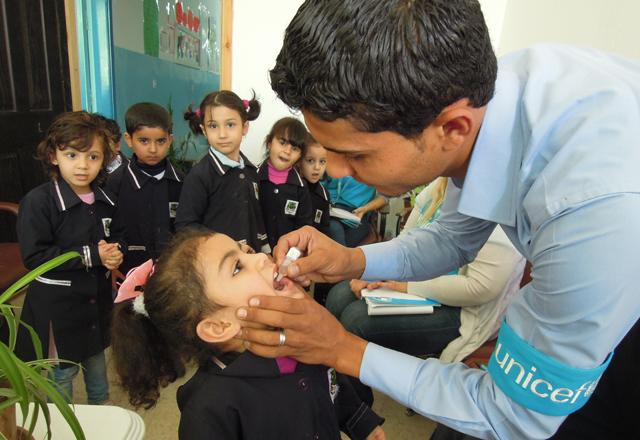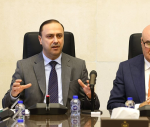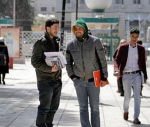AMMAN — Scholars attribute the increasing rift among followers of different sects of Islam to attempts by one party to exclude the other, in search of power.
“One party is trying to exclude the other, and this is the main reason behind the growing tension and violence in several parts of the region such as in Iraq and Syria,” Mohammad Khateeb, dean of the University (UJ) of Jordan’s Sharia faculty told The Jordan Times in a recent interview.
“This contributed to the rise of an awakening as well as the emergence of takfirists and extremism,” Khateeb said.
The issue of one party working to exclude the other figured high in a conference seeking to bridge the gap between Islamists and advocates of secularism, which concluded in Amman on Sunday, with participants asserting the importance of accepting the other and respecting their values, regardless of their faith or religious principles.
At the conference, organised by Al Quds Centre for Political Studies and titled “A consensual vision to transition to democracy”, Rasha Awad said there is a chance to arrive at a reconciliation among the followers of various sects within the same faith, stressing that human rights violations should not be tolerated.
“Violations of human rights should be exposed and religion should be used to stimulate progress in lieu of the negative role it is playing now,” added Awad, a journalist and a researcher on Islamic thought from Sudan.
Diaa Al Assadi, a former Iraqi minister, noted that political blocs and governments should be representative of all sects and no members of any party or group should be excluded.
HRH Prince Hassan, who attended part of the conference, underlined the importance of focusing on shared values and respecting differences among various groups to offset division.
The prince, who is president of the Arab Thought Forum, reiterated the importance of diligence to achieve progress, calling for the establishment of an Arab zakat fund to help relieve part of the problems of the Arab world, stressing the importance of dealing with current problems now and not deferring them any longer.
“We are all in the same boat, regardless of our currents,” he told the attendees, stressing the need to spread love and harmony and to disseminate useful knowledge.
Echoing a similar message, Abdel Fattah Mourou from Tunisia said differences should mean that people complement each other, underscoring the significance of working to achieve reform and not to promote one sect over another.
Meanwhile, a participant from Syria, Abdul Salam Salameh said: “We are paying the price for a great deal of ignorance of what citizenship, freedom and governance actually mean.”
“Syria has become the battleground for conflicting regional and international schemes and it has become the burial ground for what is left of the Arab Spring,” Salameh told The Jordan Times.
Khateeb cited the absence of “a clear Arab policy vis-à-vis what is happening in Syria” as the main reason “many people decided on their own to go and join the fight there against the Syrian regime”.
“The extremist behaviour of the Sunnis has come as a reaction to the extremist behaviour of the Shiites,” Khateeb said, noting that the massacres committed in Syria propelled several to take part in the battle.
On the other hand, Alladein M. Adawi, a specialist in Islamic studies, cited the “lack of accurate knowledge about Islam and about jihad” [holy war] as one of the reasons behind their decision.
“Also, there are people who are graduates of different schools that focus on jihad and who teach this kind of thought to their followers...
Some clerics may initiate and encourage this thought, but one cannot control every mosque and every knowledge circle,” noted Adawi, who is an assistant professor at the UJ faculty of Sharia.
In reply to a question on why division has become more vivid, he said: “In contemporary times, the development of the media has made the new generations very much exposed to these issues. In the past, this electronic revolution was not there and only experts dealt with them.”
“Media is very much to blame, especially since now every problem is linked to people’s religious affiliation,” he said.
This division is not new, according to the UJ Sharia specialists, who pointed out that it has continued to re-emerge and become more visible at different intervals throughout history for various reasons, and it is exploited and manipulated nowadays to serve political interests.


















